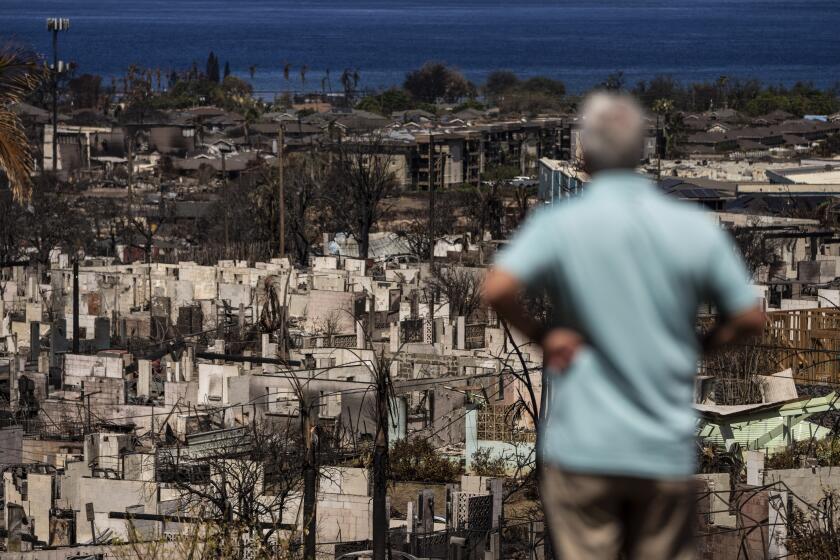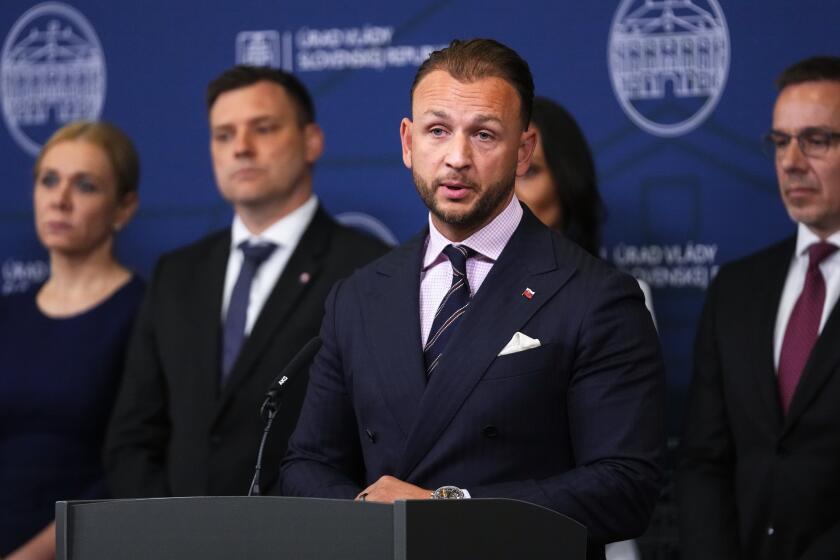Taiwanese Officials Quit APEC Summit in Tiff With China
Taiwanese officials stormed out of this weekend’s Asia-Pacific leadership summit today after an emotionally charged confrontation with their mainland hosts.
The diplomatic scuffle broke out over the issue of Taiwan’s top representative to the Asia-Pacific Economic Cooperation summit here. Taipei had wanted to send its president, Chen Shui-bian, but this was repeatedly rejected by Beijing. Taipei then offered Li Yuan-zu, a former vice president and senior advisor to Chen, but this was also deemed unacceptable.
Beijing considers Taiwan part of China and would allow it to participate in the forum only as an economic entity, not as a country.
Taiwanese Economics Minister Lin Hsin-i, who attended pre-summit talks here, said the island’s delegates were forced to leave Shanghai this morning in protest, as China had not treated them with respect.
“We deeply regret the fact that mainland China failed to fulfill its obligation as host economy,” Lin said. “We are issuing our unequivocal protest.”
Chinese Foreign Minister Tang Jiaxuan said Taiwan had broken a rule specifying that the island send only economic representatives to APEC sessions. Taiwan’s insistence on sending someone who it knew did not qualify could only suggest a “political scheme.”
Taiwan argues that the regulation, issued in 1991, applies only to ministerial-level meetings, not the summit of leaders.
From China’s perspective, Taiwan had no right to embarrass its hosts, especially in front of an audience of world leaders, including U.S. Secretary of State Colin L. Powell, who sat through the exchange without comment.
At the same news conference, sparks flew between Tang and a Taiwanese reporter who referred to China as “Zhong Gong,” which means “Communist China.” Beijing considers the phrase an insult because it suggests that there is not one but two Chinas--one free and one “Red.”
“What ‘Zhong Gong,’ ‘Zhong Gong?’ ” Tang corrected the reporter. “You are in the awe-inspiring city of Shanghai in the People’s Republic of China.”
Chen reacted to the dispute over Taiwan’s delegate with the warning that it could damage cross-strait relations. “I believe Communist China has hurt the feelings of our people,” Chen said.
Under different circumstances, the skirmish might have attracted more attention, especially from the United States, which has promised to defend Taiwan if China threatens the island with force. But as he forges a global coalition in the war against terrorism, President Bush has softened his stance toward Beijing. On Friday, at their first meeting, Bush told Chinese President Jiang Zemin that “China is a great power. And America wants a constructive relationship with China.”
Some analysts believe that Taiwan intentionally pushed the envelope with its choice of delegates, figuring that China would go to any lengths to make this year’s APEC meeting a success.
But as the host country enjoying warmer relations with Washington, China may have decided that it could afford to be tough on Taiwan without paying the price of a strong U.S. reprisal, at least for now.
Taiwan may also have been taking its home audience into consideration. With hundreds of thousands of natives fleeing the island’s dismal economy for the brighter shores of mainland China, the leadership might have wanted to reverse the tide by making the Communists look bad.
“They want to put cold water on the mainland fever and Shanghai fever sweeping the island today,” said Chen Qimao, president of the Shanghai Society of International Relations. “But if they don’t change their attitude toward China, it would mean more desperation for their economy.”
The China-Taiwan dispute stood out at a summit where leaders were downplaying their differences and rallying around Bush’s campaign against terrorism.
Lin said Friday that the Taiwanese delegation had very much wished to participate in the international anti-terrorism coalition.
More to Read
Start your day right
Sign up for Essential California for news, features and recommendations from the L.A. Times and beyond in your inbox six days a week.
You may occasionally receive promotional content from the Los Angeles Times.






